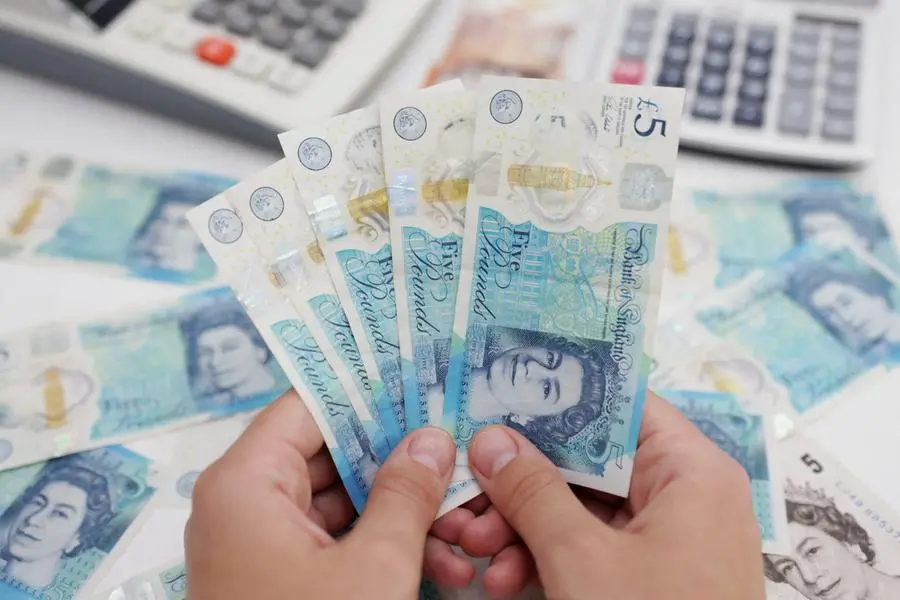PHOTO
Singapore - Sterling climbed higher on Monday after British finance minister Kwasi Kwarteng said the government would reverse a plan to scrap the UK's highest rate of income tax, while the yen weakened past the key level of 145 per dollar.
The pound touched a one-week high $1.128 and was last up 0.27% to $1.11955, surging nearly 1% after BBC first reported the news of the reversal, which Kwarteng later said in a statement on Twitter that the government is "not proceeding with the abolition of the 45p tax rate".
"We get it, and we have listened," Kwarteng said regarding the policy reversal.
His plans unleashed financial chaos last week, which saw sterling hit an all-time low of $1.0327 and sent gilts spiralling, prompting the Bank of England to step in.
As recently as Sunday Prime Minister Liz Truss reiterated that the government was sticking with its policies.
In Asia, the Japanese yen fell to 145.40 per dollar, weakening past 145 per dollar for the first time in more than a week after the government intervened to prop up the currency.
It was last seen 0.2% lower at 145.10, with trading in Asia thinned amid holidays in China, South Korea and some Australian states.
Monday's fall came after Finance Minister Shunichi Suzuki said Japan stood ready for "decisive" steps in the foreign exchange market if excessive yen moves persisted.
Sept. 22 was the last time the currency weakened below 145 to the dollar, after the Bank of Japan stuck with ultra-low interest rates, which prompted a record expenditure of 2.8 trillion yen ($19.7 billion) by authorities to prop up the yen.
"Each time (dollar/yen) gets to 145, it gets people excited. But it's the magnitude of the move that sometimes matters," said Christopher Wong, a currency strategist at OCBC.
"That said, we remain watchful and won't rule out stealth yen intervention if the magnitude of the yen's decline increases again, perhaps when it breaches 146, using current levels as reference."
The Australian and New Zealand dollars meanwhile gained ground ahead of expected rate hikes by their central banks during the week.
The Aussie was up 0.5% to $0.6443, while the kiwi was 0.92% higher at $0.5655.
The Reserve Bank of Australia and the Reserve Bank of New Zealand meet on Tuesday and Wednesday, respectively, with markets expecting both to lift their cash rate by 50 basis points, though the focus will also be on the tone of policymakers.
"The RBA could be quite influential if they give a more nuanced approach and signal that they may come down to 25 basis points in the November meeting. That might be taken, globally, quite well," said Chris Weston, head of research at Pepperstone.
The euro was marginally lower at $0.97965, with expectations for another jumbo European Central Bank rate hike this month, following a red-hot inflation read-out, heightening worries that the economy would be tipped into a recession.
Data on Friday showed that euro zone inflation zoomed past forecasts to a record high of 10.0% in September, beating expectations of 9.7%.
"The ECB is still going to have to go hard ... for me, with Europe and the UK, it's less about relative interest rate dynamics, and more about growth dynamics," said Weston.
"I think what we're starting to try and do now is look at markets where we can price inflation or start feeling a bit more confident about the trajectory around inflation. I think the U.S. falls into that category."
U.S. non-farm payrolls are due at the end of the week, while a flood of manufacturing PMI data out later on Monday will also give insight into the outlook for the global economy.
The U.S. dollar index fell 0.05% to 112.19.
(Reporting by Rae Wee; editing by Clarence Fernandez and Jason Neely)





















